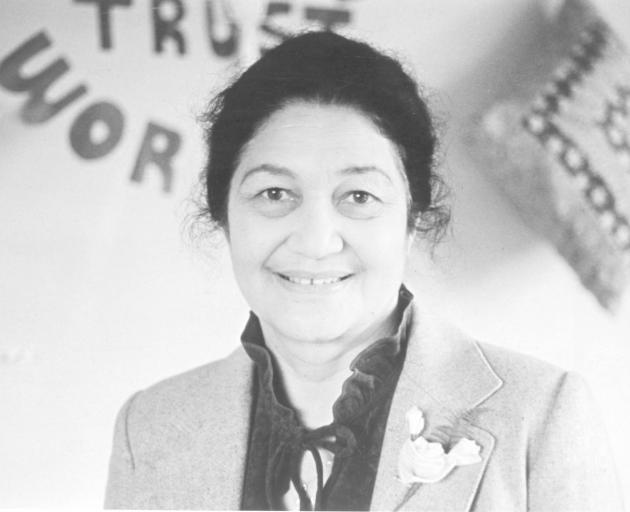
They asked for an urgent hearing into the question "Does the Treaty of Waitangi guarantee to Māori women rangatiratanga?"
They lodged this claim because of the exclusion of Māori women from the government’s appointment process for four new Crown bodies: the Māori Education Foundation Trust Board; Te Waka Toi; Te Reo Whakapuaki Irirang; and the Treaty of Waitangi Fisheries Commission.
Te Roopu Wāhine Māori Toko i te Ora Māori Womens Welfare League played a major role in the predecessors of these agencies.
But the early 1990s political rejigging of the Māori-Crown relationship meant new iterations of these boards were formed from new legislation.
The new legislation effectively removed wāhine Māori representation from many of those national governance roles.
The Treaty of Waitangi Fisheries Commission was the last straw.

So, the Wai 381 claim was lodged.
Wai 381 has become the Mana Wāhine Kaupapa Inquiry, which was launched in 2018.
More than 160 additional claims folded into the inquiry, making this a major inquiry even by tribunal standards.
Tuapapa hearings for the inquiry were held in 2021.
These hearings form the basis of the Māori perspective against which Crown breaches of Te Tiriti o Waitangi are assessed.
They include evidence of the "negation of wāhine Māori mana motuhake, and rangatiratanga over their whenua, taonga, mātauranga, hearts bodies minds, beliefs and physical and metaphysical relationships resulting in the effects of today’s inequities".
The inquiry is an extraordinary record of the inimitable power of wāhine Māori to live through nearly 200 years of destructive colonial political dominance.
The inquiry is not finished yet, but it is at risk as there is an agreement between New Zealand First and the National Party to review the Waitangi Tribunal.
The agreement says "amend the Waitangi Tribunal legislation to refocus the scope, purpose, and nature of its inquiries back to the original intent of that legislation".
But the tribunal is not acting outside its scope.
The original intent in the Treaty of Waitangi Act is that the tribunal is to "make recommendations on claims relating to the practical application of the principles of the
Treaty, to determine its meaning and effect and whether certain matters are inconsistent with those principles".
It’s just that New Zealand First doesn’t like it when it does.
Minister Shane Jones, in an interview with Mihingarangi Forbes at Waitangi earlier this year, argued that the review is necessary because the tribunal is a risk of "mission creep" because of its kaupapa inquiries.
He questioned the worth of pursuing large kaupapa claims.
He has described the tribunal as a "star chamber pulp fiction gig" referring to a secretive judicial body exercising arbitrary and unjust powers.
He has also described the tribunal as a "a source of chaos" intent on promoting "Māori sovereignty over democracy" that should be put "back in the wee telephone box where it belongs".
As serious are the threats from David Seymour to severely limit the tribunal’s power to assess government policies and even worse to wind it up altogether.
Presumably he has this attitude because the tribunal is doing exactly as its legislative mandate requires — determining whether certain matters are inconsistent with the principles of the Treaty of Waitangi.
The tribunal has not leaned politically in one direction or another.
You can read its reports under both brands of government and find the same critique of the government’s assertion that they alone have the right to define what matters to Māori people.
The Waitangi Tribunal has become an outstanding repository of the history of this country’s colonisation and its impacts on us all, whānau Māori and whānau Pākehā.
Every report describes the story of Māori and Pākehā working out how to live together on Māori land.
Many of these stories are a difficult read but they are our history and we have to own it.
The Mana Wāhine Inquiry tells the story of being wāhine through all of this history.
There is no other agency or body who could hold this mātauranga, this knowledge as well or as safely as the tribunal.
In this, Te Wiki o te Reo Māori and in recognition of Suffrage Day, we need to honour our history and respect the tribunal that makes it possible to do so.
■Metiria Stanton-Turei is a senior law lecturer at the University of Otago and a former Green Party MP and co-leader.












